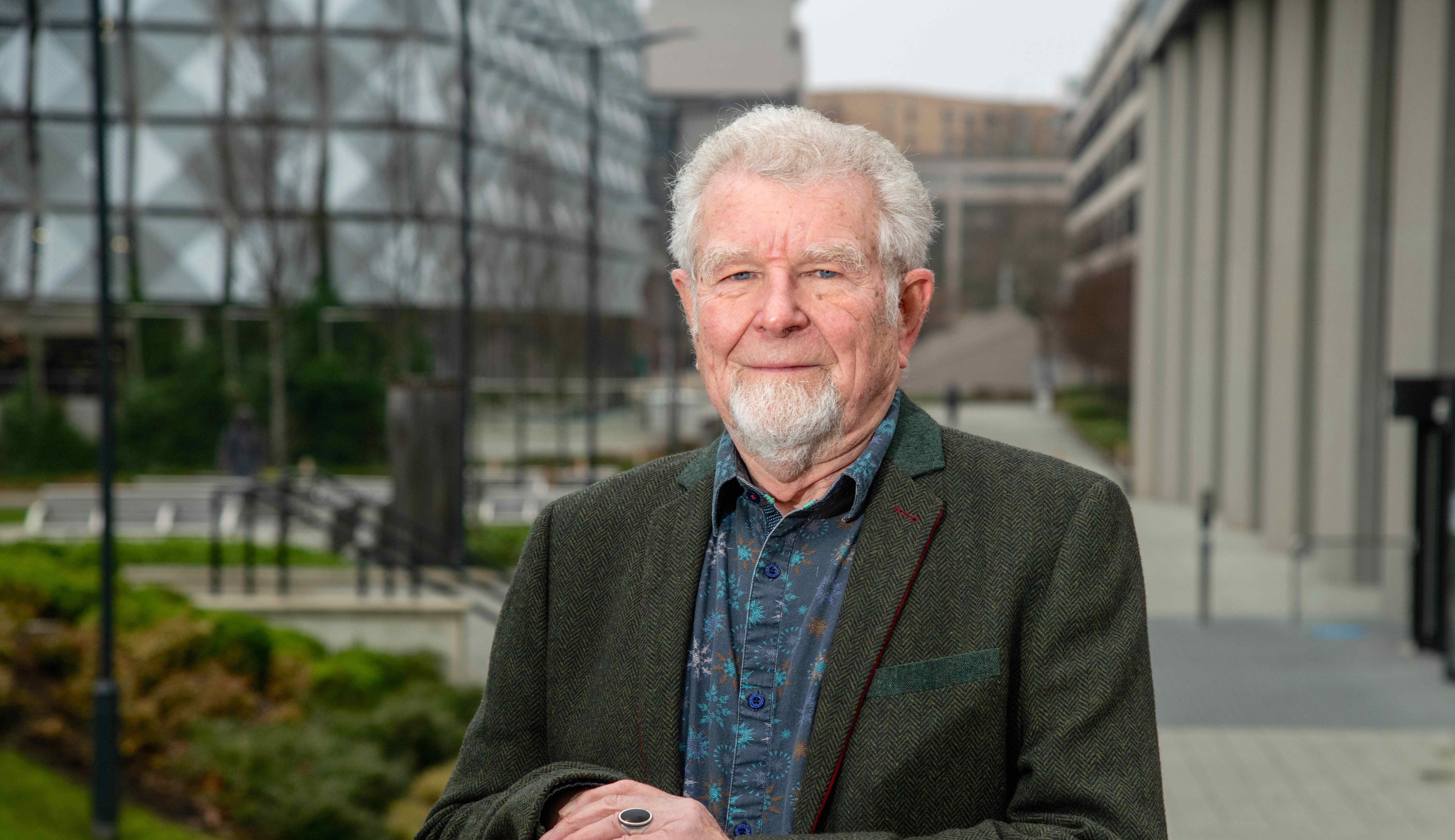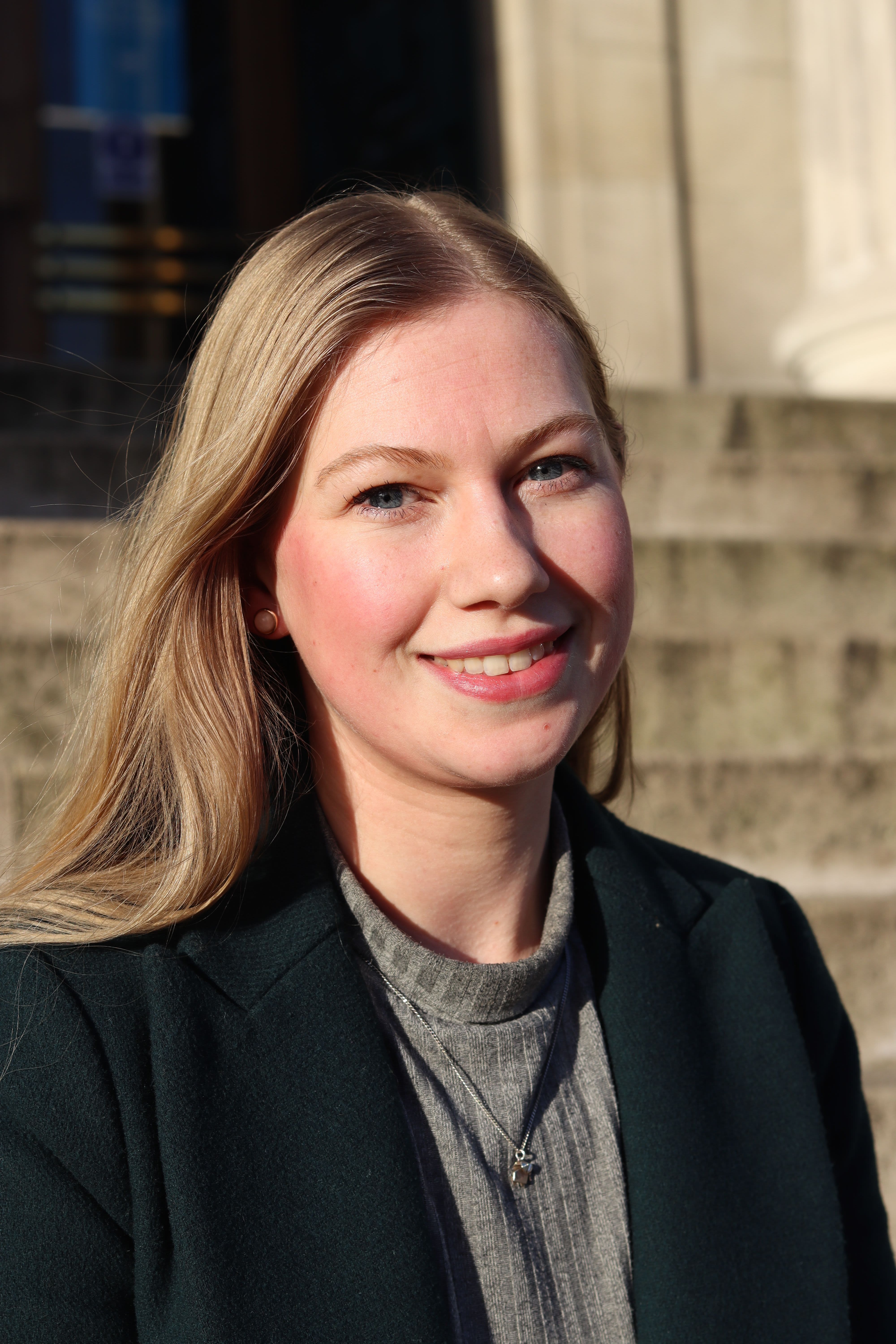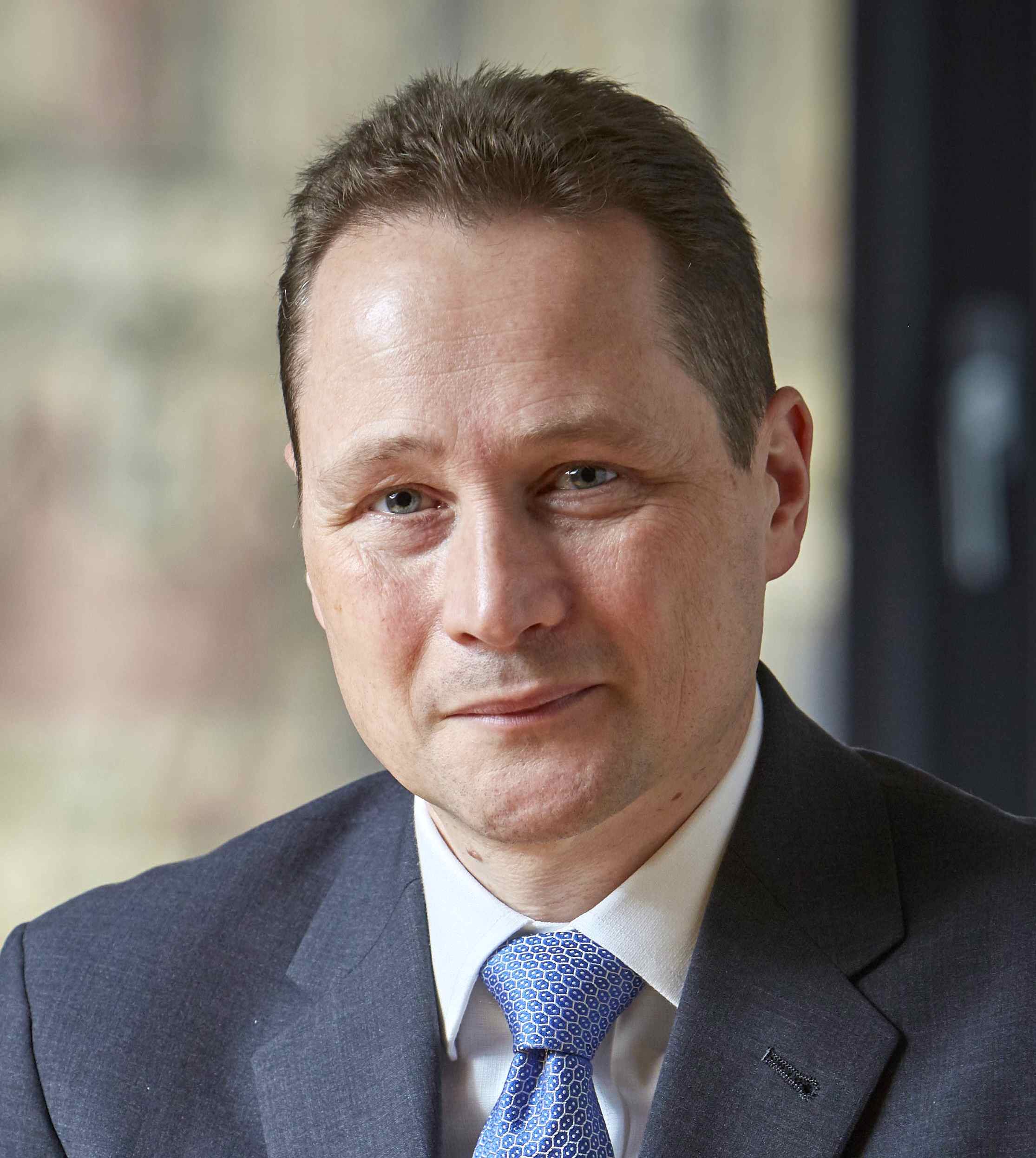Leeds was the foundation for my life

Clive Summerhayes (Civil Engineering and Industrial Relations 1962) believes his new gift to establish postdoctoral fellowships can have the same impact on talented early career researchers – and on major questions of medical research – that Leeds made on him.
“I remember coming up on the train for my interview and being appalled by the smoke, dirt and obvious deprivation,” says Clive Summerhayes, remembering his first visit to Leeds in the late 1950s. But Clive remained determined to win a place at the University.
“I’d decided that I wanted to become both an engineer and a businessman. In those days, most degrees were very narrow, but at Leeds, almost uniquely, you could read a second subject in a different faculty to your own. That really appealed to me.”
That the Professor interviewing him called the warden of Devonshire Hall to secure Clive’s accommodation demonstrated that Leeds wanted him, too.
The course proved hard work. “We were working from nine to five every day, and even after dinner at Devonshire we would come back to campus to work into the evening. Everyone did the same. The pressure was tremendous, but only about four per cent of people went to university in those days, so you felt privileged to be there.”
Money was tight: “My overdraft limit was £10, and I relied on support from my parents. I walked everywhere and couldn't afford a lot in the way of entertainment. Yates’s Wine Lodge offered a wonderful ploughman's lunch with all the cheese you could eat – so it was a once-a-term treat to go there, and occasionally go to the cinema.
And we would hitch-hike, as did many students and people doing national service at that time. I’d just wrap my big University scarf around my neck and stick out my thumb.”
Clive was soon at the heart of the social scene: “I became Social Secretary at Devonshire at a time when our all-night ball was the high point of the University year. We had a night at the theatre, a steel band, a dance band, a jazz band, and even an early juke box. There were champagne cocktails and food at midnight – and the party ended with breakfast. But there was outrage when I increased the ticket price to 22 shillings and sixpence. That was the equivalent of £1.15!”
Once he graduated, Clive embarked on a successful career in business and electronics, helping the Halma Group to become a market leader in technologies for hazard detection and life protection. “While I was working, my business and family life were very full. I had very little contact with the University until about 15 years ago, when I was asked to do some mentoring.
“I knew that I owed a great deal to Leeds. It had provided me with a very interesting education and the sound basis for my business career and I had met my wife Pauline (French and Russian 1964). It had been the foundation for a very full and successful life and I thought it was only right to give something back. I really enjoyed encouraging students, looking at their projects and helping in any way that could be of use.
“I then decided to start supporting scholarships to students from less advantaged backgrounds where this funding could make all the difference in the world to them – the difference between having a great experience at Leeds or having an awful struggle.”
Clive then funded PhD students from the Faculty of Biological Sciences working on major research projects, one exploring how to rebuild patients’ jaws following trauma, to allow reconstructive dentistry; another researching Age-Related Macular Degeneration.
And the new Summerhayes Fellowships recognise the risk of losing exceptionally talented researchers at the difficult transition point when their doctoral research is complete. “For these people to be lost to Leeds would be to the real detriment of the University. Retaining those of the very highest ability is advantageous both to themselves and the University.
“These Fellowships will ensure that postdoctoral researchers stay in Leeds and do work which will have significant medical and social impact. The Fellows will each be tackling pressing needs in areas of social disadvantage such as obesity which can lead to damaging medical outcomes such as diabetes, cancer and musculoskeletal disease. Each of these conditions causes misery and heartache to patients and their families and costs the NHS a great deal of money.
“The ability to nurture a pipeline of talented researchers who are equipped to tackle some of our most significant health challenges is of great importance. I’m certainly keen that we retain our finest homegrown talent in Leeds, but we must also focus on the needs of patients around the globe. I’m also keen to enable greater working across research disciplines because I know that that was tremendously helpful and important in my life.
“I am confident these Fellows will deliver life-changing results.”
During his 20 years of support to the University, Clive has seen scholars thrive and research projects push back the boundaries of knowledge, and he urges other alumni and supporters to take that same journey: “What I would say to fellow alumni is to look at their own lives, and consider how much of their success has been because of what Leeds has done for them – and how they might make a contribution to the institution which has shaped their future.
“And of course, another thing you can do which has no short-term cost is to plan a legacy to the University, as I have done, guaranteeing the University some valuable future income. It gives me enormous satisfaction to know I am helping people make the most of their lives, and helping the University to make the most of its resources.
I just know that Leeds changed me for the better, and that that change has endured throughout my whole life.”
If you are inspired to support the next generation of students – please consider making a gift today.

Ellie Craig (Sociology and Social Policy 2017, MA 2018)
Ellie Craig (Sociology and Social Policy 2017, MA 2018)
When he said that I could go far, that meant a lot."
“Clive Summerhayes has really inspired me to succeed,” says Ellie Craig (Sociology and Social Policy 2017, MA 2018). She feels a debt of gratitude for Clive’s advice and guidance: “He has been a great mentor to me. He helped to build my confidence and saw something in me that I didn’t see myself.”
Clive went above and beyond the role of a mentor: “He has a real eye for detail and when I was submitting my Master’s dissertation he really helped me to improve the language and grammar. He picked up on details which other people simply hadn’t noticed.”
From a single-parent family, Ellie came to Leeds with the support of a scholarship and, as a member of the student call team, took the opportunity to talk about her experiences. “I loved those conversations. It was clear that many alumni appreciate the opportunity to chat and relive their own experiences.
“And when I told my own story, that clearly resonated with some people. But it was never just a one-sided conversation. It was fascinating to learn from people of different generations about Leeds across the decades. It gave me insights into the University that few students experience.”
To have the opportunity to talk to current students of the University of Leeds please consider updating your contact details.
The Summerhayes Fellowships
This ten-year programme will enable a new generation of talented academics to lead interdisciplinary projects tackling health inequalities and disease prevention.
Targeted at early career researchers at Leeds, the Summerhayes Fellowships will provide two-year opportunities for those immediately after their PhD, a recognised point in a researcher’s career where limited opportunities are available, and where institutions like Leeds can lose outstanding talent.
Professor Nick Plant, Deputy Vice- Chancellor: Research and Innovation, says: “The Summerhayes Fellowships will enhance the scope of early career support, helping to retain the best talent at Leeds while tackling major questions of human health.

Professor Nick Plant
Professor Nick Plant
“As 21st century lifestyles change, we see healthcare providers faced with complex challenges. One example is the epidemic of obesity, which is driven by inactivity and poor diet and is associated with type 2 diabetes, cardiovascular disease, musculoskeletal problems and cancers. We are also seeing the impact of health inequalities, for example in Leeds where the number of people dying from cancer and cardiovascular disease differs substantially between the most deprived and most affluent areas.
“These Fellows will enable us to act urgently and tackle these global and local challenges, building on our already internationally recognised skills in exercise science, cardiovascular and diabetes research.”
The Fellowships will be at the heart of the University strategy, ‘Universal Values, Global Change’ which embodies an ambitious goal to prevent disease and tackle health inequalities at a local, national and international level. Underpinning this goal is a key aim to develop, support and retain the best researchers with the ability to cross traditional research boundaries.
